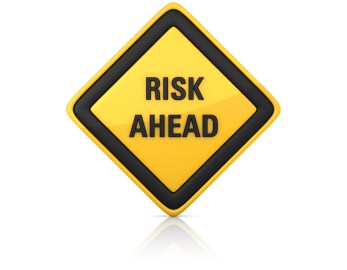How The Media Put Us At Risk With The Way They Report About Risk

A new study regarding a high-profile risk…mercury…has two important findings; there may be an association between in-utero mercury exposure and ADHD as kids grow up, but the children of pregnant mothers who ate more fish generally had better overall cognitive health. Beyond those findings, though, the study also teaches an important lesson about another risk, a risk that is far greater than the risk of mercury; the risk of how the news media cover risk in the first place.
Not surprisingly, the media generally reported on the study the way Alice Park did in Time Magazine, leading with the possible link between mercury exposure and ADHD. Most stories also included, but played down, the finding that eating fish is generally more good than bad for the cognitive health of the fetus. (This depends on which fish, and how much fish one eats.) The bad news was played up. The reassuring news, the news that conflicts with The Accepted Truth…Mercury is BAD…got played down.
Okay. The news media tend to play up the scary aspect of things, and play down the aspects of stories that moderate how worrisome the news might be. D’UH! I was a TV reporter in Boston for 22 years and I did this all the time. I wanted my story to lead the newscast, and I wanted to please my bosses, who wanted tonight’s newscast to attract viewers to tomorrow night’s…to boost ratings. (The news business is a business, after all.) Alarmism accomplishes both goals. If It Scares, It Airs!
But the coverage of this new mercury study demonstrates something more worrisome about how the media cover risk in general, something that is directly harmful to your health and mine. It’s not just the alarmist way they report things, but also a matter of which stories and facts they report, and which ones they simply don’t.
The finding that eating fish (certain species, in certain amounts) may be more good than bad was reported as though it’s NEW. But in 2007, The Lancet, a prominent medical journal, carried twostudies finding just that: that the kids of pregnant moms who avoided eating fish to protect their unborn children from mercury actually had worse overall cognitive health than those born to moms who ate the fish, even lots of mercury-containing fish. The oils in the fish are important for the healthy cognitive development of the fetus. They help produce the myelin wrapping (white matter) around the axons and dendrites (neural wires). which works like insulation to helps those wires work better. The Lancet studies suggested that the fats in the fish help the cognitive development of the fetus more than the neurotoxic mercury hurts it.
That’s pretty big news, wouldn’t you say? It’s certainly pretty important to pregnant moms or women considering pregnancy, who want to know what’s best for the fetus. The problem is, GOOD news about mercury goes against The Accepted Truth…Mercury is BAD…and the media are nothing if not a pack that buys into The Accepted Truth when it comes to most risks. It takes a brave reporter, or editor, to challenge the common belief about a risk, especially an environmental risk. They are criticized by their peers, challenged by their bosses and their readers. True to that pattern, want to guess how those Lancet studies were reported? They WEREN’T. Not by the New York Times or Associated Press or Reuters or any of the general media (as best I could find after an extensive search.)
(Here are a couple other reassuring studies on the risk of mercury that the general news media didn’t report, nearly as much as they cover the scary ones; Heart Benefits of Fish Trump Mercury and PCB ExposuresStudy Finds No Association Between Mercury Exposure and Risk of Cardiovascular Disease)
Perhaps even more egregious, news media reporting on the risk of mercury has almost completely failed to explain just how big or small a risk it is. It is practically impossible to find a story that explains what the original study found about the actual damage neurotoxic mercury does to the cognitive health of the fetus. The kids born to moms who ate lots of high-mercury fish had about one quarter of one I.Q. point below what would be expected, and some other cognitive deficits of similarly small scale. Yes, that is certainly a risk, and while not large for any individual, across society it adds up to a cumulative risk worth serious attention. But it is hardly the bogeyman the media make mercury out to be. Ms Park said began her Time story on the new study this way; “The health risks of mercury exposure are well documented, and the harms for still-developing fetuses are particularly concerning.” Ms Park is right that the risks are well-documented in the scientific literature, but absolutely wrong that those risks have been well-documented by people like her in the general news media.
This is a common failing in risk reporting, a mistake I made far too often during my reporting career. It’s simply not adequate to say “X causes cancer …” or “Y causes heart disease.” How much disease? And to whom? (Mercury, for example, is basically not a risk to adults at the doses most of us are exposed to.) Risk is never ‘either/or’. It’s always a matter of degree. There are some vital basic details the news consumer needs to understand what the risk really is, critical qualifications that almost never show up in stories about risk. Without these details, stories on risk are incomplete, in central ways. This is poor journalism. But it is much more. It is directly dangerous to public health.
We are at risk from many things. One of them is The Risk Perception Gap…when we worry more than the evidence warrants or less than the evidence warns, because of the subjective way we perceive risk in the first place, and we end up making choices that feel right but do us more harm than good (pregnant moms avoiding fish). The cure for countering the dangers of The Risk Perception Gap is careful conscious thinking. But without the basic facts – and let’s face it, few of us are going to research things on our own – how can we make intelligent healthy choices? We rely on the news media to keep us informed, but when it comes to relying on them to inform us about risk, we rely on them at our peril.





